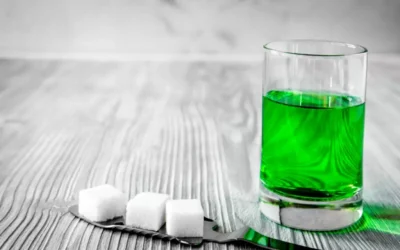The Power of Admitting Powerlessness
Content
(There’s an additional one in Spain.) In the past 18 years, more than 5,000 Finns have gone to the Contral Clinics for help with a drinking problem. Seventy-five percent of them have had success reducing https://ecosoberhouse.com/ their consumption to a safe level. Quite the contrary, being able to admit that you can’t drink makes you self-aware and honest. Knowing your limitations helps you to succeed and accomplish your goals.

This is the “wpengine” admin user that our staff uses to gain access to your admin area to provide support and troubleshooting. It can only be accessed by a button in our secure log that auto generates a password and dumps that password after the staff member has logged in. We have taken extreme measures to ensure that our own user is not going to be misused to harm any of our clients sites.
Evidence-Based 12-Step Facilitative Interventions
He discovered beer, too, and loved the earthy, bitter taste on his tongue when he took his first cold sip. Vanessa is a Montgomery County native who spends her free time traveling with her daughter and volunteering in the community. In autumn and winter, the days get shorter, and skies are often cloudy, depriving us of natural sunlight and unleashing all sorts of mood disturbances in many people. This is often known as seasonal depression, winter depression, or seasonal affective disorder (SAD)…. Join Recovery Connection in celebrating your recovery with our sobriety calculator. The spiritual malady is the sickness of our soul, developed over time and can only be truly overcome by looking at ourselves first.
- Many factors go into addiction development, from genetics to untreated mental health symptoms, for which some people turn to alcohol or drugs as a way of self-medicating.
- The idea of powerlessness comes from the powerlessness over the substance and it’s effect on the user.
- Here are some of the most common myths debunked or explained.
- I cannot tell you which of these alternatives is the best for you.
Max began his career in the addiction field working as a group facilitator and teacher, developing and delivering a successful faith-based curriculum in a long-term residential treatment setting. Accruing years of hands-on experience working alongside the administrators of facilities across the country in development of their own unique programs gave Max a unique and robust perspective into the administrative requirements of addiction treatment programs. Alexandra oversees all operations with The Freedom Center to ensure clients are given the best chance at success. She works with The Freedom Center team to develop and implement policies, procedures and oversees Intakes and Transportation.
The paradox of powerlessness
According to Twelve Steps and Twelve Traditions (1981), “Few indeed were those who, so assailed, had ever won through in singlehanded combat. It was a statistical fact that alcoholics rarely recovered on their own resources” (p. 22). Step 1 of AA acknowledges the need for members to hit rock bottom to understand alcohol addiction’s destructive nature.

Most recovering addicts, especially those who attend the 12-step program, are powerless over alcohol pretty familiar with the concept of powerlessness. After all, helplessness isn’t a concept that solely applies to addiction, although it might be the first step to recovery and sobriety. Addiction treatment centers discuss the concept of powerlessness in therapy to help people recover. There are a number of recently developed measures that can assist the practitioner in determining where the individual is in his or her readiness to engage in 12-Step groups (Cloud & Kingree, 2008). This step of accepting powerlessness from the 12-Step process of recovery essentially highlights the power of drugs and alcohol over our lives. Few people intend to destroy their lives and relationships by drinking or doing drugs, but that is what can happen with addiction.
Contact Miracles Recovery Center…
You may be powerless over the effects of substance abuse, but choosing to be better every day is where that power returns. Powerlessness is often mistaken for weakness, but this is actually a step of strength. There is no mandatory national certification exam for addiction counselors. The 2012 Columbia University report on addiction medicine found that only six states required alcohol- and powerless over alcohol substance-abuse counselors to have at least a bachelor’s degree and that only one state, Vermont, required a master’s degree. Fourteen states had no license requirements whatsoever—not even a GED or an introductory training course was necessary—and yet counselors are often called on by the judicial system and medical boards to give expert opinions on their clients’ prospects for recovery.
What does it mean to be powerless over alcohol?
What is powerlessness? When referring to powerlessness in AA, it is referring to the inability to control how much alcohol you drink. Admitting that you are powerlessness over alcohol means that you cannot and never will be able to drink alcohol in a safe manner again.
The key, however, is once accessing that power, an addict and alcoholic no longer remains powerlessness. They may always be powerless over drugs and alcohol but they no longer remain powerless over their illness of addiction or alcoholism. Instead, they have become powerful and have the ability to do anything they choose to do in life. For many addicted to alcohol and drugs, it’s difficult to admit the way addiction has made their lives unmanageable. They may deny the problem altogether, saying, “It’s only a few drinks,” or, “I don’t get high all the time,” or, “Things could be much worse.” Part of admitting powerlessness means acknowledging the reasons you struggle to admit the problem in the first place.
Step Interventions and Mutual Support Programs for Substance Use Disorders: An Overview
Accepting this reality is what will equip you to seek treatment rather than deny that there is a problem in the first place. The accountability and encouragement in meetings and therapy break the power of secrecy where addiction thrives. It helps foster accountability and is a profound place of support. What happens in a group of people admitting powerlessness over addiction is a power in itself.
- Today there are more than 13,000 rehab facilities in the United States, and 70 to 80 percent of them hew to the 12 steps, according to Anne M. Fletcher, the author of Inside Rehab, a 2013 book investigating the treatment industry.
- But researchers have debunked central tenets of AA doctrine and found dozens of other treatments more effective.
- I visited one of three private treatment centers, called the Contral Clinics, that Sinclair co-founded in Finland.
- Powerlessness means that you are thoroughly convinced that if you put alcohol in your body, disaster will follow.
I finally understood what an alcoholic and addict really is. I saw that I was worse than I knew, but understanding the problem helped me accept the solution. Today with the understanding of powerless, our number one priority is our relationship with our creator and how we can best serve. We sometimes feel as if we are the victim and point fingers at other people or situations.
A Life Free From Addiction Is Possible
In such cases, approaches that focus more on 12-Step practices and tenets and less on meeting attendance may be needed (Caldwell & Cutter, 1998). Table 3 provides an overview of the focus and key features of the four 12-Step facilitation reviewed below. In 2006 and 2007, an annual average of five million individuals age 12 or older in the United States attended a self-help group as a means of trying to deal with alcohol or drug use issues (Substance Abuse and Mental Health Services Administration, 2008).


